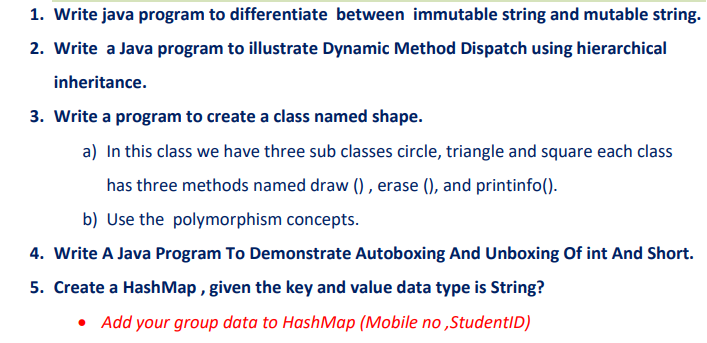Why Are Strings Immutable in Java? Safety And Security and Performance Advantages
Why Are Strings Immutable in Java? Safety And Security and Performance Advantages
Blog Article
Immutable Strings: A Trick Component in Ensuring Data Uniformity and Reliability
In the realm of data administration, the significance of immutable strings can not be overstated. The principle of unalterable strings goes beyond plain formality; it is a cornerstone in the facility internet of data administration.
The Idea of Immutable Strings
Unalterable strings, an essential idea in programs, describe strings that can not be changed as soon as they are developed. Essentially, once a string value is assigned, any kind of procedure that appears to modify the string really produces a new string. This immutability makes certain data uniformity and integrity in applications, as it stops unanticipated adjustments to the initial information.
Benefits in Information Consistency

Data consistency is essential in various facets of software program advancement, including data source monitoring, multi-threaded atmospheres, and distributed systems (Why are strings immutable in Java?). Unalterable strings add dramatically to accomplishing this consistency by preventing information corruption because of concurrent access. In scenarios where numerous procedures or threads communicate with the exact same information simultaneously, unalterable strings work as a safeguard versus race problems and synchronization issues
In addition, the immutability of strings simplifies debugging and screening processes. With unalterable strings, designers can rely on that once a string is established, it will continue to be unchanged, making it less complicated to trace the resource of errors and ensuring that examination situations produce constant outcomes. This dependability in data taking care of eventually results in more stable and durable applications.

Applying Immutable Strings
Ensuring the immutability of strings requires a thoughtful approach to their implementation in software development. Once a string things is created, one key technique is to develop string classes in a means that stops adjustments. By making strings unalterable, designers can enhance information uniformity and dependability in their applications.
To implement unalterable strings efficiently, designers should favor developing new string items instead than customizing existing ones. This practice guarantees that as soon as a string is appointed a worth, it can not be transformed. Additionally, any type of procedure that appears to customize the string needs to create a brand-new string with the wanted changes rather than altering the original.
In addition, making use of unalterable strings can simplify concurrency management in multi-threaded settings. Since immutable strings can not be altered after production, they can be securely shared among several strings without the threat of information corruption.
Duty in Reliability Assurance
In software application growth, the application of immutable strings plays an essential duty in ensuring the dependability of data procedures. Immutable strings, when developed, can not be changed, ensuring that the data they represent remains consistent throughout the application's implementation. This immutability residential property gives a degree of guarantee that the data being processed will certainly not be inadvertently changed, causing unanticipated end results or mistakes in the system.
By incorporating immutable strings into software layout, developers can enhance the reliability of their applications by minimizing the dangers associated with mutable information - Why are strings immutable in Java?. Unalterable strings assist in protecting against information corruption or unexpected adjustments, which can be specifically essential when managing delicate information or when information stability is critical
Additionally, using unalterable strings simplifies simultaneous handling, as numerous threads can safely accessibility and share string information without the risk of one string changing the material while an additional reads it. This aspect adds considerably to the general reliability of the software system, making sure consistent and predictable habits in information dealing with operations.
Applications and System Combination
The seamless integration of unalterable strings into numerous applications and systems is essential for guaranteeing durable data consistency and reliability throughout diverse technical atmospheres - Why are strings immutable in Java?. Immutable strings play an essential duty in boosting the honesty of information exchanges and communications within facility software ecosystems. read more By integrating immutable additional info strings into applications, designers can mitigate the dangers connected with data tampering, unapproved modifications, and inadvertent modifications, therefore fortifying the total protection position of the system
In the context of system assimilation, immutable strings offer as a foundational aspect for developing safe communication networks and assisting in smooth information transfers between different elements. Their unalterable nature ensures that data transmitted between systems remains unchanged and proven, minimizing the possibility of disparities or errors that might compromise the stability of the entire system. Additionally, unalterable strings can enhance interoperability in between inconsonant systems by providing a standardized layout for data depiction, allowing a lot more efficient data processing and exchange methods across interconnected platforms. By adopting immutable strings in applications and system integration procedures, companies can fortify their information infrastructure and support the reliability and consistency of their information properties.
Conclusion
Finally, unalterable strings play an essential duty in maintaining data uniformity and integrity in different applications and system integrations. By guaranteeing that strings can not be changed as soon as developed, the integrity of information is maintained, reducing the threat of inconsistencies and mistakes. Executing unalterable strings can substantially improve the reliability of systems, eventually leading to more accurate and trustworthy data processing.
Report this page